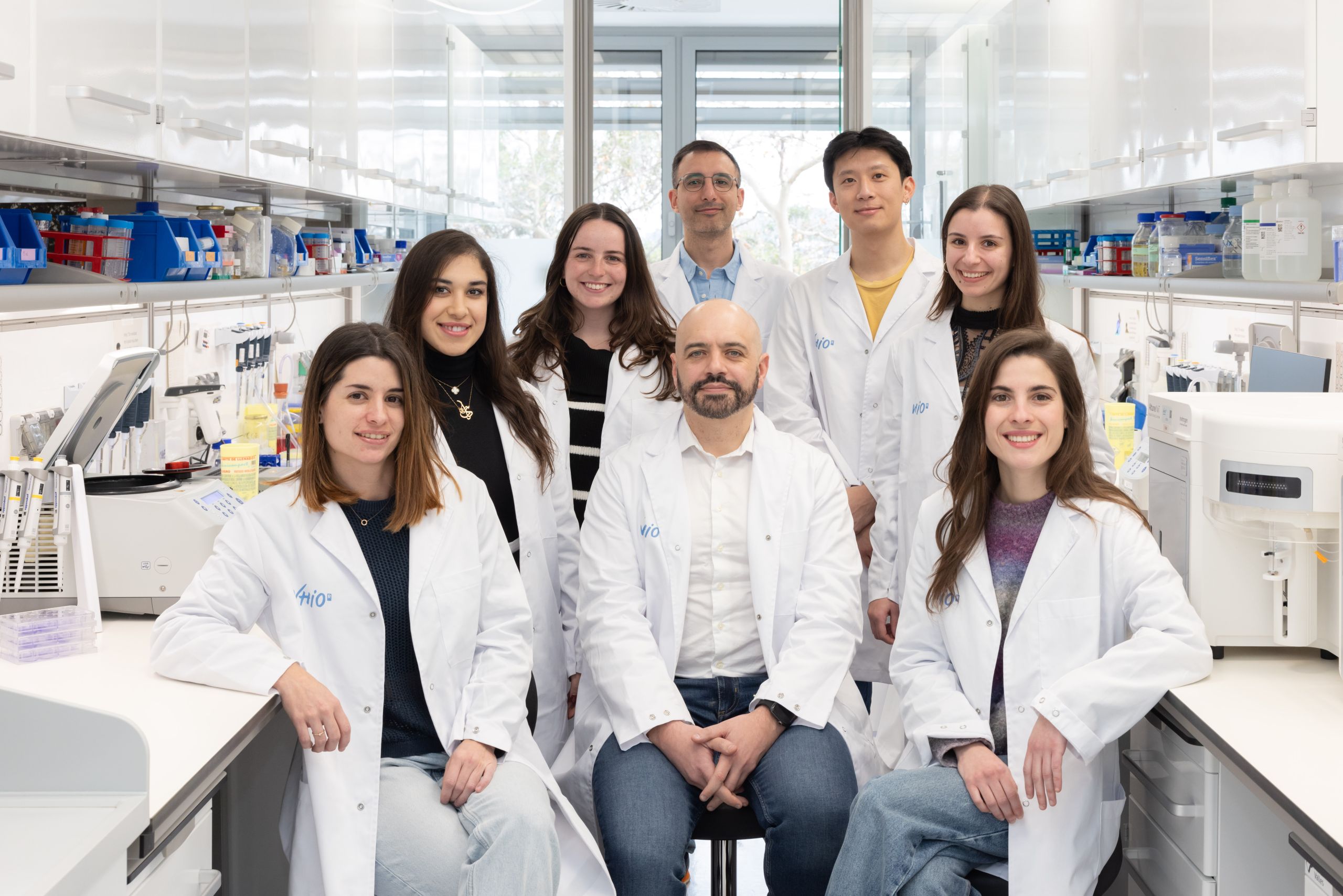
Our group studies the function of large-scale chromosomal changes known as copy number alterations (CNAs). We combine state-of-the-art genome engineering strategies to uncover the mechanisms by which CNAs enable cancer cells to propagate and resist therapies. We are particularly interested in the role of these alterations in immune surveillance, tumor heterogeneity, and cancer genome evolution. Our long-term goal is to understand the complex biology of CNAs to identify new therapeutic strategies that target cells with these chromosomal aberrations.
Cancers arise through genetic and epigenetic alterations that drive the transformation of single cells into malignant tumors. Among the most frequent genetic changes observed in cancer are CNAs. As their name implies, CNAs change how many copies of specific regions of DNA a cancer cell has. Importantly, some CNAs are associated with poor clinical outcomes, yet we still do not know how they change the properties of tumor cells. To better understand the function of these alterations, our lab combines in vivo models of cancer with MACHETE, a new technique for engineering CNAs.
Our previous work focused on studying the co-deletion of a cluster of 17 type I interferons linked to the tumor suppressor genes CDKN2A/B. Using MACHETE (Molecular Alteration of Chromosomes with Engineered Tandem Elements), we showed that combined loss of the interferon cluster and tumor suppressors led to immune evasion, metastasis, and reduced response to immunotherapy compared to CDKN2A/B-only deletions (Barriga, Tsanov et al. 2022). This study illustrates the complex biology of CNAs and underscores the need for precise modeling approaches to elucidate the biological consequences of these alterations. We also recently published a protocol paper (Barriga and Lowe, 2024), to facilitate the establishment of MACHETE in laboratories interested in creating megabase-sized genomic deletions. From a broader perspective, CNAs have a unique operational logic rooted in changes of gene dosage and DNA topology, which we aim to explore in greater depth.
Beyond our work on CNAs, we are also developing new combinatorial genetic tools to dissect the complex cellular states in vitro and in vivo.
- Understand the role of CNAs as mechanisms of immune evasion and epigenetic rewiring.
- Identify the effect of CNAs in tumor heterogeneity.
- Dissect the contribution of CNAs and ploidy in shaping cancer genome evolution.
- Decipher the biology of unique cell states via combinatorial genetics models in vivo.
Group Leader
Francisco “Pancho” Barriga
Lab manager
Xieng Chen Wang
Postdoctoral fellows
Etna Abad
Dario Ruiz
PhD students
Sofía Calpe
Golsa Jahangiri
Matea Katić
Claudia Yañez
- Barriga FM*, Lowe SW. Barriga FM, Lowe SW. Engineering megabase-sized genomic deletions with MACHETE (Molecular Alteration of Chromosomes with Engineered Tandem Elements). Nat Protoc. 2024 May;19(5):1381-1399. *Corresponding author.
- Tsanov KM, Barriga FM, Ho YJ, Alonso-Curbelo D, Livshits G, Koche RP, Baslan T, Simon J, Tian S, Wuest AN, Luan W, Wilkinson JE, Masilionis I, Dimitrova N, Iacobuzio-Donahue CA, Chaligné R, Pe’er D, Massagué J, Lowe SW. Metastatic site influences driver gene function in pancreatic cancer. bioRxiv [Preprint]. 2024 Mar 18:2024.03.17.585402.
- Zhao X, Liu B, William WN, Tsanov KM, Ho YJ, Barriga FM, Lim RJ, Trifas M, Du Y, Lowe SW, Dubinett SM, Davoli T, Lippman SM. Interferon-ε loss is elusive 9p21 link to immune-cold tumors, resistant to immune-checkpoint therapy and endogenous CXCL9/10 induction. J Thorac Oncol. 2024 Dec 24:S1556-0864(24)02539-5.
- Barriga FM. Studying large genomic deletions with MACHETE. Nat Rev Cancer. 2023 May;23(5):271.
- Barriga FM. “Studying large genomic deletions with MACHETE”. Nat Rev Cancer. 2023. May;23(5):271.
- Barriga FM, Lowe SW. “Engineering megabase-sized genomic deletions with MACHETE (Molecular Alteration of Chromosomes with Engineered Tandem Elements)”. Nature Protocols (2024) 19; 1381-1399.
“My Bibliography” at the NCBI
Título: Unraveling the function of anti-tumor immune cell states through combinatorial genetics – IMMUNE_TRACE
Referencia: CNS2023-144041
Entidad Financiadora: Agencia Estatal de Investigación. Ministerio de Ciencia e Innovación
Periodo de Ejecución: 1/04/2024-31/03/2026
PI: Francisco Barriga
Ayuda cofinanciada por la Unión Europea Next Generation EU – Plan de Recuperación Transformación y Resilencia
![]()
ERC Starting Grant Acronym: MACHETE
Title: Dissecting the epigenetic effects of MHC cluster deletion in pancreas cancer (EPI-MHC). Funding entity: Agencia Estatal de Investigación – Ministerio de Ciencia e Innovación. Ref: PID2022-141256OA-I00. Duration:01/09/2023 – 31/08/2026. PI: Pancho Barriga

Título: Unraveling the function of anti-tumor immune cell states through combinatorial genetics – IMMUNE_TRACE
Referencia: CNS2023-144041
Entidad Financiadora: Agencia Estatal de Investigación. Ministerio de Ciencia e Innovación
Periodo de Ejecución: 1/04/2024-31/03/2026
PI: Francisco Barriga
Ayuda cofinanciada por la Unión Europea Next Generation EU – Plan de Recuperación Transformación y Resilencia
![]()
ERC
Edward P Evans Foundation













